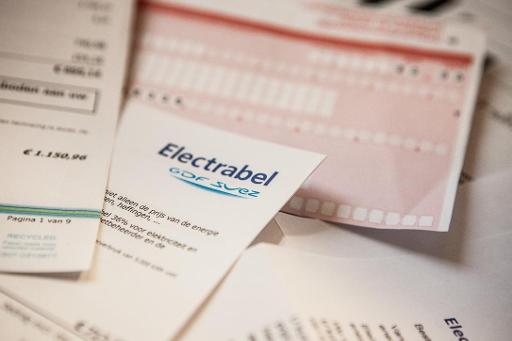A new energy tariff structure that will come into place in Flanders on 1 July could see people who use little electricity pay up to €100 more.
Currently, network tariffs make up around 40% of an average household's bills and are mainly based on kWh consumption. However, the Flemish Electricity and Gas Market Regulator (VREG) will introduce the so-called capacity tariff, which should result in the network tariff accounting for just 18% of bills.
For consumers with a digital meter, this capacity tariff, which aims to encourage people to spread their consumption, is determined on the basis of their average monthly peak capacity term. Households with a conventional meter will pay a fixed rate.
A study by the University of Gent analysing the impact of this new tariff system shows that some households will be clear-cut winners, but there will be others that lose out.
Victims of the capacity tariff
The study found that those who use very little electricity could pay up to €100 more. This will mainly be households that consume less than 900 kilowatt-hours (kWh) of electricity per year. This could be people with second homes but also some 152,000 households with solar panels – around 10% of households.
Depending on what type of meter is used, they could see their bills increase by €50-100 on an annual basis. Low-usage households and companies can use the VREG's online simulator to calculate the impact of the new grid tariffs on their annual electricity bill.
Households that use between 900 and 2,350 kWh per year (17.5% of all households) will also lose out. Around 447,000 households will see their bills increase by €20-50 if they have a conventional meter.
This means that in total, around 27.5% of all households in the region will see their bills increase on an annual basis after the implementation of the capacity tariff.
The largest group of consumers (almost 60%) are those with a slightly higher average consumption (between 2,350 and 5,500 kWh) and are both winners and losers, as the larger consumers can more easily compensate for the capacity tariff because the cost per unit of electricity consumed falls.
People in this group with digital meters will be able to save money by consciously spreading energy consumption.
Energy minister reacts with concern
The study's publication comes in light of the ongoing energy crisis that has brought record-high energy bills, leading the government to implement measures to cushion the effect of rising prices on households.
The region's Energy Minister Zuhal Demir, who asked Ghent University to analyse the impact of the tariff, expresses concern about the results and has considered postponing the introduction of the new system again (it was already due to be introduced in the first half of 2022).
Related News
- Rising energy prices: How other countries are responding
- Massive energy bill? You could be entitled to help
Demir urged caution during the energy crisis: "With the current energy prices and the difficult situation in which families find themselves, we cannot be too careful."
She has asked members of the Flemish Parliament, which oversees VREG and decides whether the new system is implemented, to take a serious look at the capacity tariff.
Large consumers are clear-cut winners
Researchers also found that there are clear winners in this situation. Large consumers (around 6.5% of all households), including 135,000 households that do not have solar panels and 25,000 that do, could see an average reduction of more than €100 on their annual bills, regardless of the type of meter.
The capacity tariff could also make appliances that consume a lot of energy – such as electric cars, heat pumps and electric heating – cheaper. However, this will only be the case if consumption is spread out to avoid peak usage.
This new tariff structure is part of a national effort to move Belgium towards CO2-neutrality, meaning more people will be using electricity instead of fossil fuels for transport and home heating.
"If we do not take measures, this will result in ever greater peak loads. If everyone were to charge their electric cars around the same time at the end of the working day, the grid might even become overloaded," read a statement from the Flemish government.

